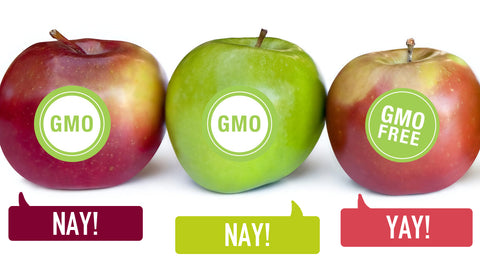By Rise Bar Staff
Did you know that Zea mays, the scientific name for the common corn crop, is increasingly found in all types of foods and products, whether it is in artificial sweeteners like high-fructose corn syrup or in the diets of cattle? In these days, where we are confronted by all kinds of issues like GMOs, factory farmed foods, and allergens, it is becoming more and more important to know what is actually in your food and how it got there.
 Corn in Our Food
Corn in Our Food
Besides the common yellow variety of this plant found in your local grocery store, corn can be found in a wide range of products, such as corn oil, cookies, chips, even ethanol. Corn in itself isn’t inherently bad – but its prevalence in such a wide variety of products means that we’re eating corn even when we don’t think we are because it is in the diets of animals that traditionally should feed on grasses, not grains, such as cows, turkey, pigs, and even fish.
Artificial Sweeteners
 Besides calorie-laden snacks, corn can also be found in compounds like high-fructose corn syrup. Diet drinks often contain other sweeteners like aspartame or neotame, chemicals that are synthesized in a plant rather than made from plants. When looking for a quick-fix to that sweet tooth, it’s best to stick to natural sweeteners like honey or even agave nectar.
Besides calorie-laden snacks, corn can also be found in compounds like high-fructose corn syrup. Diet drinks often contain other sweeteners like aspartame or neotame, chemicals that are synthesized in a plant rather than made from plants. When looking for a quick-fix to that sweet tooth, it’s best to stick to natural sweeteners like honey or even agave nectar.
 GMO Foods
GMO Foods
Genetically-modified organisms (GMOs) are plants or animals that have been modified with a combination of different genes from other sources. There is no scientific consensus that GMOs are completely safe, and in fact, a number of developed countries, such as a group of European Union nations, have banned GMO crops and placed labeling restrictions on them so that people know exactly what it is that they are eating.
Organic
Although there’s a lot of buzz about organic foods, the label means that a product adheres to standards as set forth by the US Department of Agriculture, including rules that an organic product can’t use genetically modified ingredients, uses only approved materials from organic sources where animal health and natural behavior is ensured, and is subject to onsite inspections.
Allergens
 The most common allergies for adults include milk, eggs, peanuts, and tree nuts. That’s why it’s important for people to know what exactly their packaged foods contain. Too often, companies make their products in plants that also process these foods, most commonly with the same egg, peanut, and tree nut allergens that can result in cross-contamination and result in less control over the final product. It’s important to check the labels and read the fine print in these cases.
The most common allergies for adults include milk, eggs, peanuts, and tree nuts. That’s why it’s important for people to know what exactly their packaged foods contain. Too often, companies make their products in plants that also process these foods, most commonly with the same egg, peanut, and tree nut allergens that can result in cross-contamination and result in less control over the final product. It’s important to check the labels and read the fine print in these cases.
Gluten
Gluten is a type of protein found in many wheat products. It is especially harmful to people with celiac disease who cannot digest this compound properly. Some people who don’t have celiac disease can still find themselves sensitive to gluten and it has adverse effects on their digestive systems and bodies. It’s important to consider whether your diet can benefit from cutting back on gluten.



